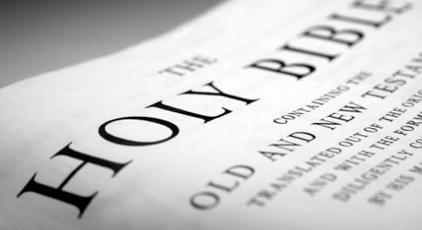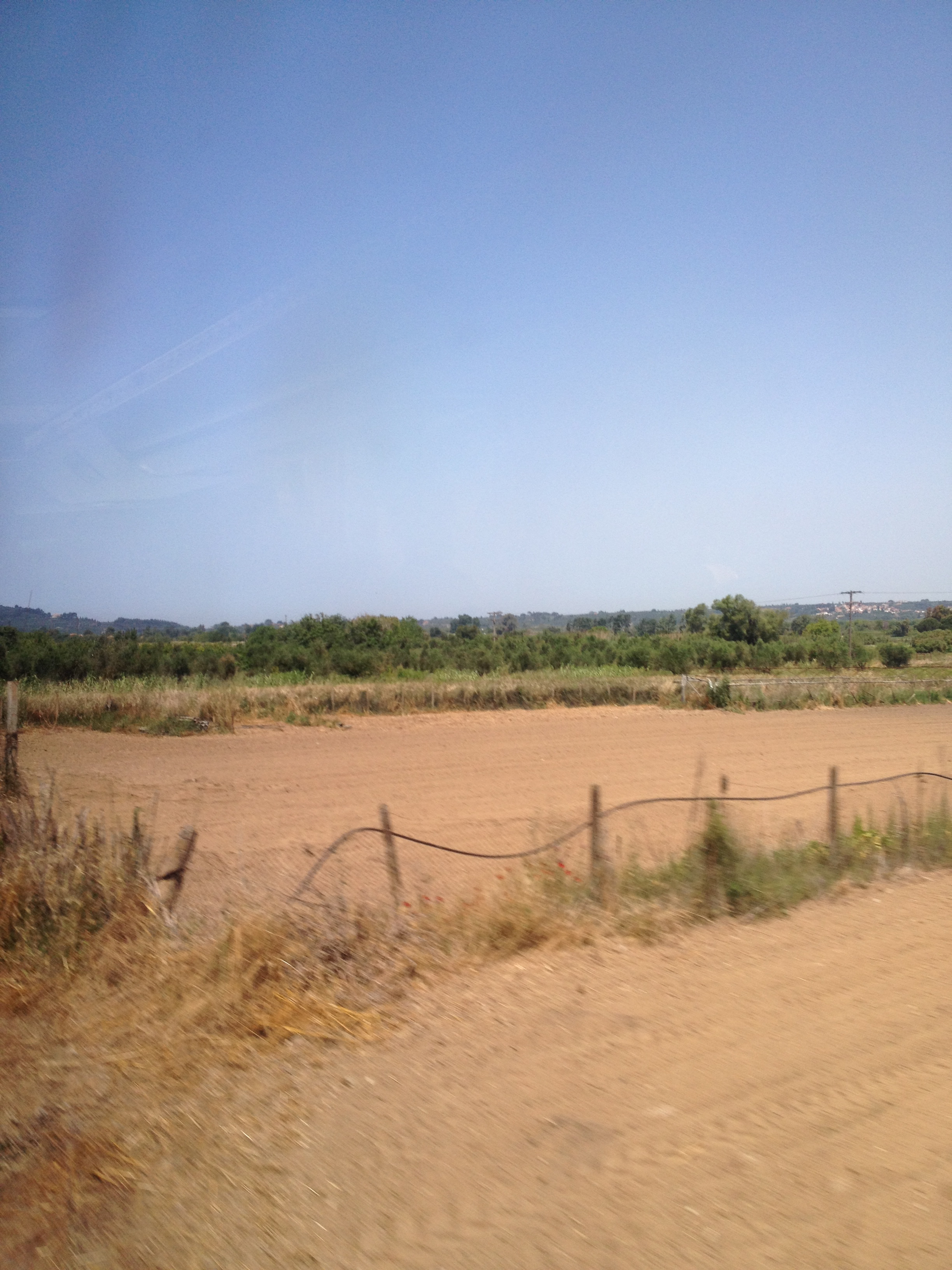
Genesis 25:23 The Lord said to her, “Two nations are in your womb, and two peoples from within you will be separated; one people will be stronger than the other, and the older will serve the younger.”
Read Genesis 25:21-34 This is the story of Isaac praying for Rebekah to have children, and the birth of Jacob and Esau, along with Esau selling his birthright to Jacob for some red soup. This is where Esau got the name Edom (which means red). Jacob’s name means “he grasps the heel” or he deceives figuratively speaking. Note: The birthright was essentially the family’s leadership and priesthood, it was very significant, and Esau treated it lightly, he basically sold his role as head of the family and priestly inheritance for a pot of soup. Jacob did deceive Isaac, his father, in the end by pretending to be Esau to receive the blessing that was Esau’s birthright. (Genesis 27).
***Take note that at this time the Levitical Priesthood did not yet exist….the role of keeping the family on track with God fell to the head of the family…they made the offerings on behalf of the family as were necessary.

Genesis 25:21-34 New International Version (NIV)
21 Isaac prayed to the Lord on behalf of his wife, because she was childless. The Lord answered his prayer, and his wife Rebekah became pregnant. 22 The babies jostled each other within her, and she said, “Why is this happening to me?” So she went to inquire of the Lord.
23 The Lord said to her,
“Two nations are in your womb,
and two peoples from within you will be separated;
one people will be stronger than the other,
and the older will serve the younger.”
24 When the time came for her to give birth, there were twin boys in her womb. 25 The first to come out was red, and his whole body was like a hairy garment; so they named him Esau. 26 After this, his brother came out, with his hand grasping Esau’s heel; so he was named Jacob. Isaac was sixty years old when Rebekah gave birth to them.
27 The boys grew up, and Esau became a skillful hunter, a man of the open country, while Jacob was content to stay at home among the tents. 28 Isaac, who had a taste for wild game, loved Esau, but Rebekah loved Jacob.
29 Once when Jacob was cooking some stew, Esau came in from the open country, famished. 30 He said to Jacob, “Quick, let me have some of that red stew! I’m famished!” (That is why he was also called Edom.)
31 Jacob replied, “First sell me your birthright.”
32 “Look, I am about to die,” Esau said. “What good is the birthright to me?”
33 But Jacob said, “Swear to me first.” So he swore an oath to him, selling his birthright to Jacob.
34 Then Jacob gave Esau some bread and some lentil stew. He ate and drank, and then got up and left.
So Esau despised his birthright.
Genesis 27 New International Version (NIV)
27 When Isaac was old and his eyes were so weak that he could no longer see, he called for Esau his older son and said to him, “My son.”
“Here I am,” he answered.
2 Isaac said, “I am now an old man and don’t know the day of my death. 3 Now then, get your equipment—your quiver and bow—and go out to the open country to hunt some wild game for me. 4 Prepare me the kind of tasty food I like and bring it to me to eat, so that I may give you my blessing before I die.”
5 Now Rebekah was listening as Isaac spoke to his son Esau. When Esau left for the open country to hunt game and bring it back, 6 Rebekah said to her son Jacob, “Look, I overheard your father say to your brother Esau, 7 ‘Bring me some game and prepare me some tasty food to eat, so that I may give you my blessing in the presence of the Lord before I die.’ 8 Now, my son, listen carefully and do what I tell you: 9 Go out to the flock and bring me two choice young goats, so I can prepare some tasty food for your father, just the way he likes it. 10 Then take it to your father to eat, so that he may give you his blessing before he dies.”
11 Jacob said to Rebekah his mother, “But my brother Esau is a hairy man while I have smooth skin. 12 What if my father touches me? I would appear to be tricking him and would bring down a curse on myself rather than a blessing.”
13 His mother said to him, “My son, let the curse fall on me. Just do what I say; go and get them for me.”
14 So he went and got them and brought them to his mother, and she prepared some tasty food, just the way his father liked it. 15 Then Rebekah took the best clothes of Esau her older son, which she had in the house, and put them on her younger son Jacob. 16 She also covered his hands and the smooth part of his neck with the goatskins. 17 Then she handed to her son Jacob the tasty food and the bread she had made.
18 He went to his father and said, “My father.”
“Yes, my son,” he answered. “Who is it?”
19 Jacob said to his father, “I am Esau your firstborn. I have done as you told me. Please sit up and eat some of my game, so that you may give me your blessing.”
20 Isaac asked his son, “How did you find it so quickly, my son?”
“The Lord your God gave me success,” he replied.
21 Then Isaac said to Jacob, “Come near so I can touch you, my son, to know whether you really are my son Esau or not.”
22 Jacob went close to his father Isaac, who touched him and said, “The voice is the voice of Jacob, but the hands are the hands of Esau.” 23 He did not recognize him, for his hands were hairy like those of his brother Esau; so he proceeded to bless him. 24 “Are you really my son Esau?” he asked.
“I am,” he replied.
25 Then he said, “My son, bring me some of your game to eat, so that I may give you my blessing.”
Jacob brought it to him and he ate; and he brought some wine and he drank. 26 Then his father Isaac said to him, “Come here, my son, and kiss me.”
27 So he went to him and kissed him. When Isaac caught the smell of his clothes, he blessed him and said,
“Ah, the smell of my son
is like the smell of a field
that the Lord has blessed.
28 May God give you heaven’s dew
and earth’s richness—
an abundance of grain and new wine.
29 May nations serve you
and peoples bow down to you.
Be lord over your brothers,
and may the sons of your mother bow down to you.
May those who curse you be cursed
and those who bless you be blessed.”
30 After Isaac finished blessing him, and Jacob had scarcely left his father’s presence, his brother Esau came in from hunting. 31 He too prepared some tasty food and brought it to his father. Then he said to him, “My father, please sit up and eat some of my game, so that you may give me your blessing.”
32 His father Isaac asked him, “Who are you?”
“I am your son,” he answered, “your firstborn, Esau.”
33 Isaac trembled violently and said, “Who was it, then, that hunted game and brought it to me? I ate it just before you came and I blessed him—and indeed he will be blessed!”
34 When Esau heard his father’s words, he burst out with a loud and bitter cry and said to his father, “Bless me—me too, my father!”
35 But he said, “Your brother came deceitfully and took your blessing.”
36 Esau said, “Isn’t he rightly named Jacob? This is the second time he has taken advantage of me: He took my birthright, and now he’s taken my blessing!” Then he asked, “Haven’t you reserved any blessing for me?”
37 Isaac answered Esau, “I have made him lord over you and have made all his relatives his servants, and I have sustained him with grain and new wine. So what can I possibly do for you, my son?”
38 Esau said to his father, “Do you have only one blessing, my father? Bless me too, my father!” Then Esau wept aloud.
39 His father Isaac answered him,
“Your dwelling will be
away from the earth’s richness,
away from the dew of heaven above.
40 You will live by the sword
and you will serve your brother.
But when you grow restless,
you will throw his yoke
from off your neck.”
41 Esau held a grudge against Jacob because of the blessing his father had given him. He said to himself, “The days of mourning for my father are near; then I will kill my brother Jacob.”
42 When Rebekah was told what her older son Esau had said, she sent for her younger son Jacob and said to him, “Your brother Esau is planning to avenge himself by killing you.43 Now then, my son, do what I say: Flee at once to my brother Laban in Harran. 44 Stay with him for a while until your brother’s fury subsides. 45 When your brother is no longer angry with you and forgets what you did to him, I’ll send word for you to come back from there. Why should I lose both of you in one day?”
46 Then Rebekah said to Isaac, “I’m disgusted with living because of these Hittite women. If Jacob takes a wife from among the women of this land, from Hittite women like these, my life will not be worth living.”
Read Genesis Chapter 28,This is where Isaac instructs Jacob not to marry any Canaanite women, but to go to his Mother’s brother’s house and find a wife there from his mother’s people. Jacob dreams of a stairway to heaven and God renews his covenant with Jacob that he had with Abraham and Isaac. God reassures Jacob that he will be with him where ever he goes. God again reassures the next generation of Abraham’s progeny that he is with them and renews again his covenant that he made with Abraham two generations before with Jacob, Abraham’s Grandson. God is stable and faithful to his agreements. Jacob is also in the Ancestry of Jesus the Christ.

Genesis 28 New International Version (NIV)
28 So Isaac called for Jacob and blessed him. Then he commanded him: “Do not marry a Canaanite woman. 2 Go at once to Paddan Aram, to the house of your mother’s father Bethuel. Take a wife for yourself there, from among the daughters of Laban, your mother’s brother. 3 May God Almighty bless you and make you fruitful and increase your numbers until you become a community of peoples. 4 May he give you and your descendants the blessing given to Abraham, so that you may take possession of the land where you now reside as a foreigner, the land God gave to Abraham.” 5 Then Isaac sent Jacob on his way,and he went to Paddan Aram, to Laban son of Bethuel the Aramean, the brother of Rebekah, who was the mother of Jacob and Esau.
6 Now Esau learned that Isaac had blessed Jacob and had sent him to Paddan Aram to take a wife from there, and that when he blessed him he commanded him, “Do not marry a Canaanite woman,” 7 and that Jacob had obeyed his father and mother and had gone to Paddan Aram. 8 Esau then realized how displeasing the Canaanite women were to his father Isaac; 9 so he went to Ishmael and married Mahalath, the sister of Nebaioth and daughter of Ishmael son of Abraham, in addition to the wives he already had.
Jacob’s Dream at Bethel
10 Jacob left Beersheba and set out for Harran. 11 When he reached a certain place, he stopped for the night because the sun had set. Taking one of the stones there, he put it under his head and lay down to sleep. 12 He had a dream in which he saw a stairway resting on the earth, with its top reaching to heaven, and the angels of God were ascending and descending on it. 13 There above it stood the Lord, and he said: “I am the Lord, the God of your father Abraham and the God of Isaac. I will give you and your descendants the land on which you are lying. 14 Your descendants will be like the dust of the earth, and you will spread out to the west and to the east, to the north and to the south. All peoples on earth will be blessed through you and your offspring. 15 I am with you and will watch over you wherever you go, and I will bring you back to this land. I will not leave you until I have done what I have promised you.”
16 When Jacob awoke from his sleep, he thought, “Surely the Lord is in this place, and I was not aware of it.” 17 He was afraid and said, “How awesome is this place! This is none other than the house of God; this is the gate of heaven.”
18 Early the next morning Jacob took the stone he had placed under his head and set it up as a pillar and poured oil on top of it. 19 He called that place Bethel, though the city used to be called Luz.
20 Then Jacob made a vow, saying, “If God will be with me and will watch over me on this journey I am taking and will give me food to eat and clothes to wear 21 so that I return safely to my father’s household, then the Lord will be my God 22 and this stone that I have set up as a pillar will be God’s house, and of all that you give me I will give you a tenth.”
Read Genesis 32:22-32 This is where Jacob’s name was changed to Israel because he struggled with God and with men and overcame both.
Genesis 32:22-32 New International Version (NIV)
Jacob Wrestles With God
22 That night Jacob got up and took his two wives, his two female servants and his eleven sons and crossed the ford of the Jabbok. 23 After he had sent them across the stream, he sent over all his possessions. 24 So Jacob was left alone, and a man wrestled with him till daybreak. 25 When the man saw that he could not overpower him, he touched the socket of Jacob’s hip so that his hip was wrenched as he wrestled with the man. 26 Then the man said, “Let me go, for it is daybreak.”
But Jacob replied, “I will not let you go unless you bless me.”
27 The man asked him, “What is your name?”
“Jacob,” he answered.
28 Then the man said, “Your name will no longer be Jacob, but Israel, because you have struggled with God and with humans and have overcome.”
29 Jacob said, “Please tell me your name.”
But he replied, “Why do you ask my name?” Then he blessed him there.
30 So Jacob called the place Peniel, saying, “It is because I saw God face to face, and yet my life was spared.”
31 The sun rose above him as he passed Peniel, and he was limping because of his hip.32 Therefore to this day the Israelites do not eat the tendon attached to the socket of the hip, because the socket of Jacob’s hip was touched near the tendon.
There is a lot more information on Jacob. He had twelve sons for whom the 12 tribes of Israel were named. If you look at historical maps of Israel you will see that there are regions named after each tribe except for the Levites who were to be priests (Exodus).








 God’s forgiveness is total…God loves you. He is not up there in heaven with a book of “today she did this bad thing…today she did this good thing…” He is portrayed that way, but that is not correct. The Bible tells us that those who are in Jesus are blameless in the sight of God.
God’s forgiveness is total…God loves you. He is not up there in heaven with a book of “today she did this bad thing…today she did this good thing…” He is portrayed that way, but that is not correct. The Bible tells us that those who are in Jesus are blameless in the sight of God.



 2 Corinthians 4:7-10
2 Corinthians 4:7-10
 Genesis 37:26-28
Genesis 37:26-28
 One of Jesus’ names is the Lion of Judah.
One of Jesus’ names is the Lion of Judah. 

 Genesis 26:4-5 I will make your descendants as numerous as the stars in the sky and will give them all these lands, and through your offspring all nations on earth will be blessed. (This is another reference to the coming Messiah).
Genesis 26:4-5 I will make your descendants as numerous as the stars in the sky and will give them all these lands, and through your offspring all nations on earth will be blessed. (This is another reference to the coming Messiah).
 Genesis 26:12-35
Genesis 26:12-35

 John 5:24 I tell you the truth, whoever hears my word and believes him who sent me has eternal life and will not be condemned; he has crossed over from death to life.
John 5:24 I tell you the truth, whoever hears my word and believes him who sent me has eternal life and will not be condemned; he has crossed over from death to life.

 Matthew 13:44 The Kingdom of heaven is like treasure hidden in a field. When a man found it, he hid it again, and in his joy he went and sold all that he had and bought the field.
Matthew 13:44 The Kingdom of heaven is like treasure hidden in a field. When a man found it, he hid it again, and in his joy he went and sold all that he had and bought the field.  Also under the laws in Leviticus the selling of the land was not to be permanent…so you may say it was more of a renting out for the use of the land and its crop.
Also under the laws in Leviticus the selling of the land was not to be permanent…so you may say it was more of a renting out for the use of the land and its crop. Luke 8:4-15
Luke 8:4-15